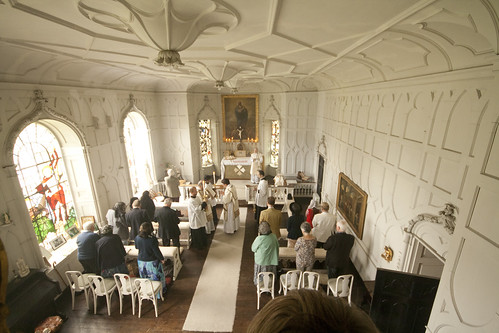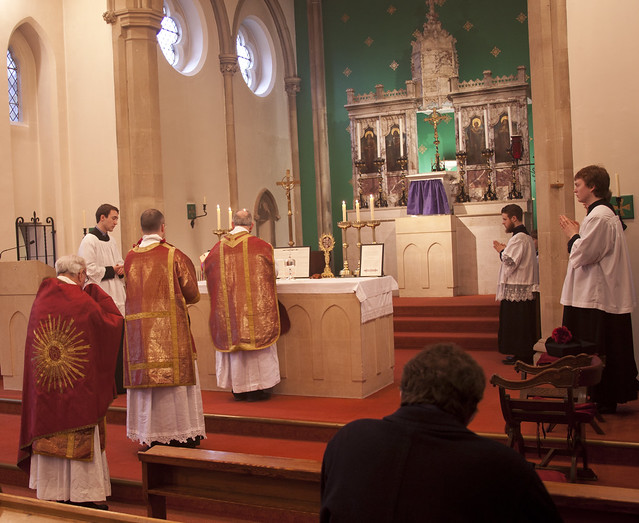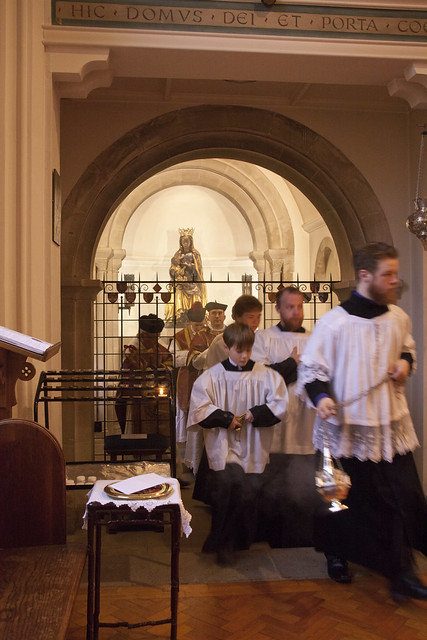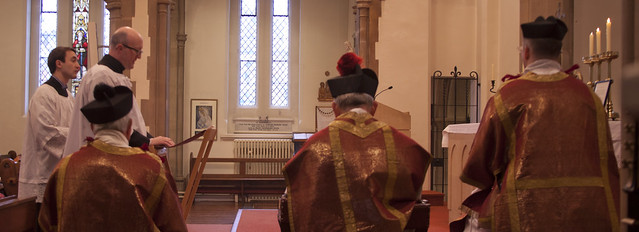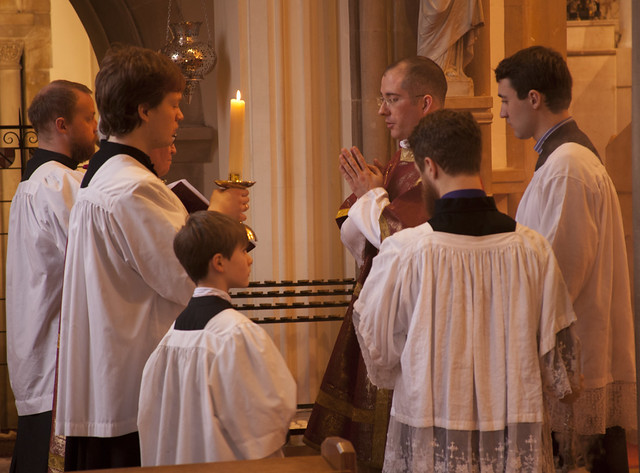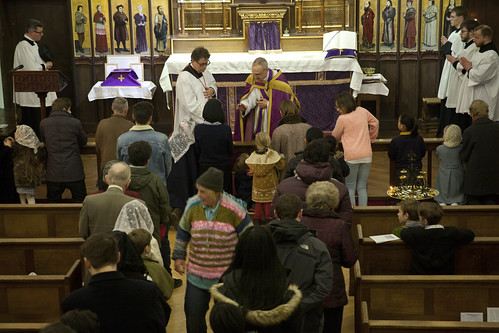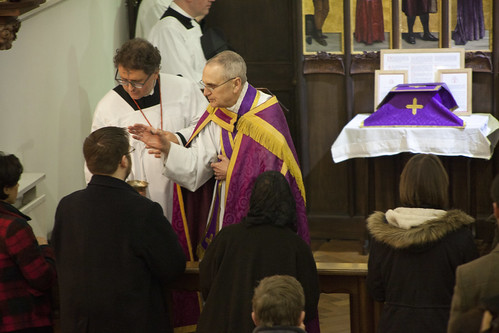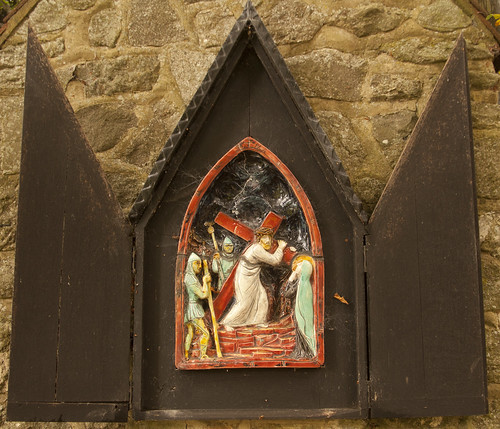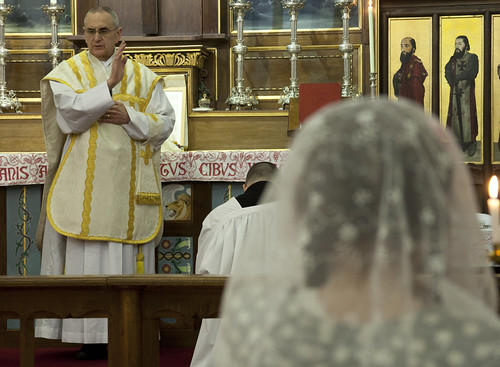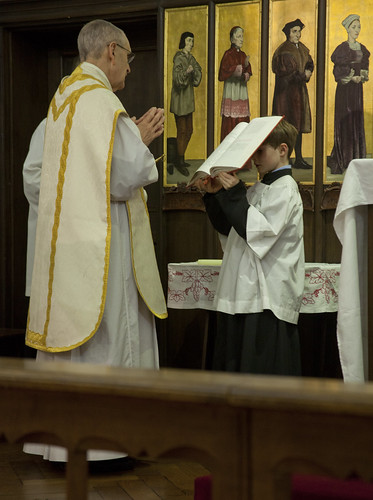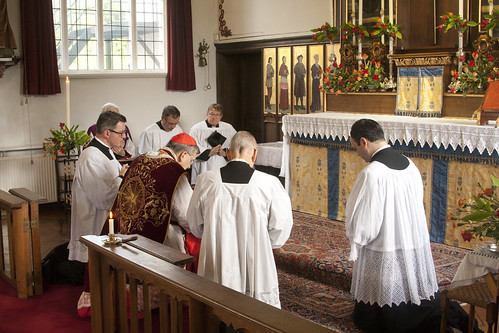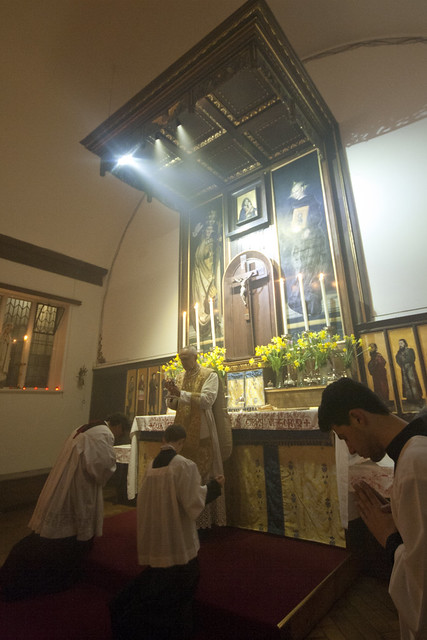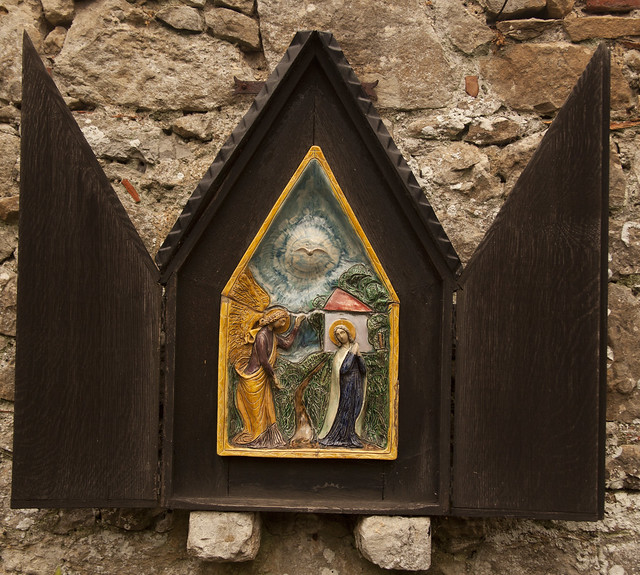 |
| The Annunciation. From the Rosary Walk at Aylesford Priory. |
The Pope referred to the famous case of the 'Nuns in the Congo' in the latest aeroplane interview. The case is about nuns who, fearing rape, take some kind of contraceptive pill. Pope Francis' exact purpose in making the reference was unclear, but not nearly unclear enough for the Vatican spokesman Fr Lombardi, who relived his triumphs in obscuring the teaching of Pope Benedict XVI on the dangers of condoms for people with AIDS, and in throwing sand into the eyes of everyone trying to make sense of Pope Benedict's remarks about male prostitutes using condoms.
In the meantime, Sandro Magister seems to have uncovered the history of the 'Nuns in the Congo' discussion, which wasn't what pretty well everyone had assumed up to now, claiming that Pope Paul VI said nothing on the subject. Rahter, it had simply been discussed by some theologians under Pope John XXIII.
Being a moral philosopher rather than a historian or, for that matter, a mind-reader, I think the contribution I can best make here is to explain why the Nuns in the Congo case is important, regardless of whether Pope Paul VI or any other pope authorised any ruling about it.

